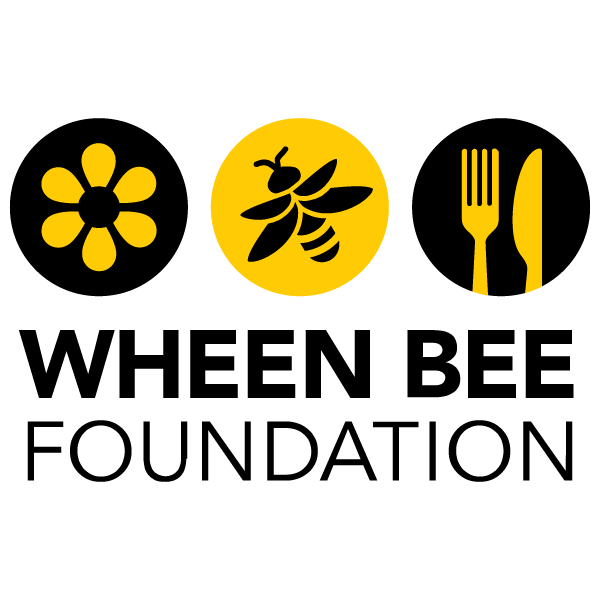Our People
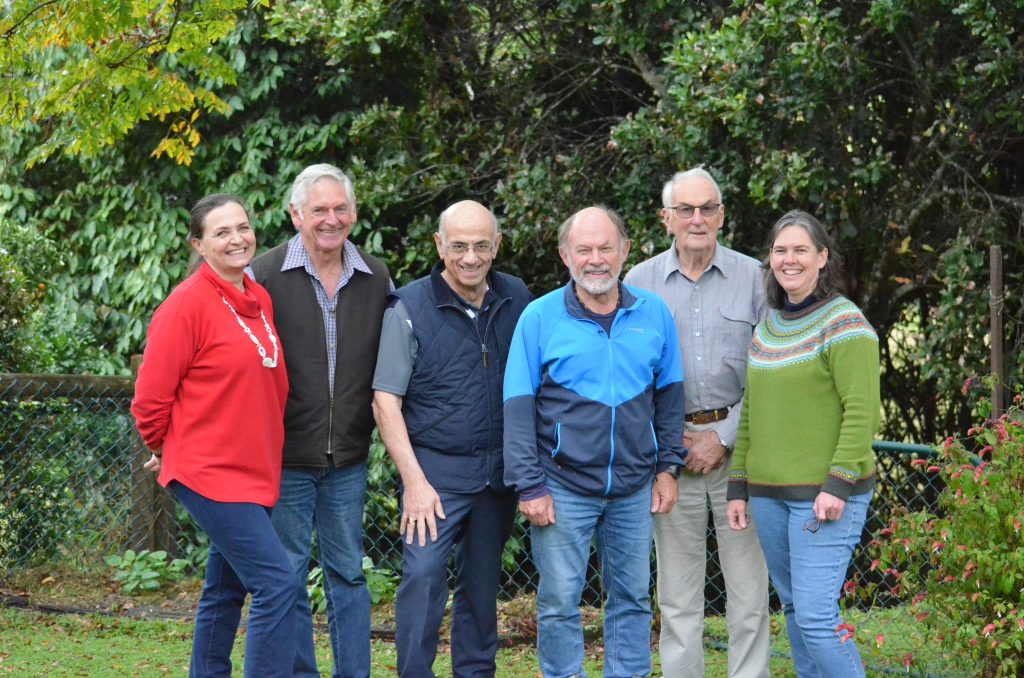
Team
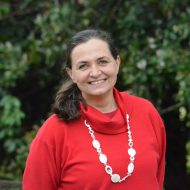
Fiona Chambers
CEO
Fiona has 30 years business experience in the production and marketing of agricultural and horticultural commodities both in Australia and overseas.
Before taking up the position of CEO with the Wheen Bee Foundation, Fiona lectured in business management and marketing at Marcus Oldham College in Geelong, Victoria.
As convenor of the Marcus Oldham Rural Leadership Program and the Apple and Pear Australia Ltd (APAL) Emerging Leaders’ Program, Fiona developed extensive networks across a range of rural industries throughout Australia.
Fiona is passionate about conserving rare and endangered breeds of farm livestock. In addition to breeding Wessex Saddleback pigs and Shropshire sheep, Fiona was instrumental in establishing a rare breed meat marketing scheme for the Rare Breeds Trust of Australia, of which she was a founding director.
She has delivered papers at numerous national and international conferences. In 2004, Fiona became a director of the international NGO, Rare Breeds International, and remains actively involved in advocating for the global conservation of farm livestock breeds for food security.
Key strengths and experience brought to the Foundation by Fiona:
- Extensive business and leadership experience and expertise
- Broad industry networks across a range of pollination-dependent industries
- National and international understanding of sustainability and food security
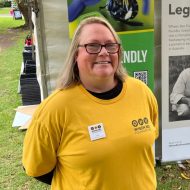
Lea Hannah
Bee Friendly Farming – Farm Technical Liaison Officer & Project Manager Powerful Pollinators
Lea Hannah is a pollination biologist fascinated by all aspects of plant-pollinator interactions and improving biodiversity within both natural and agricultural landscapes.
Current Zoology.
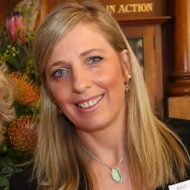
Anita Vogel
Programs Administrator
Anita Vogel is a professional grant writer with over a decade of experience working with businesses, NFPs, primary producers, charities, start-ups and entrepreneurs to understanding their unique funding needs.
Directors
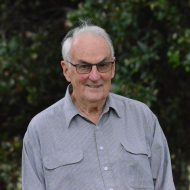
Dr Max Whitten AM - Chair
Max Whitten (BA, BSc, PhD, FAA, AM) is an Adjunct Professor, School of Biological Sciences, University of Queensland. He was formerly Chief of CSIRO Entomology and Professor of Genetics at the University of Melbourne.
Max was the first Chairman of the Honeybee Research and Development Council. His research interests centred around genetic means of controlling insect pests and the ecological genetics of pesticide resistance. His wider interests have been in public good research, sustainable agriculture and biodiversity.
Max has served as Visitor for a number of Cooperative Research Centres and chaired the Advisory Board for the Special Research Centre on Environmental Stress and Adaptation at the University of Melbourne. Max was a member of the Research Committee for the Slade Foundation. Since retiring from CSIRO in 1996, Max has worked with the Food and Agriculture Organization of the United Nations, helping governments and farmers in Asia reduce their dependency on pesticides. He is also helping Australian beekeepers and pollination-dependent industries restructure to cope with new pests and diseases.
Key strengths and experience brought to the Foundation by Max:
- Extensive experience in biological research and research management
- Experience in scrutinising and grading research proposals
- A network of connections internal and external to the industry
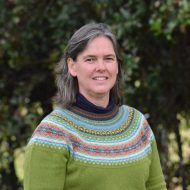
Jodie Goldsworthy
Jodie Goldsworthy (BAppSci, Grad Dip Strat Mkting) is a fourth generation apiarist and Director of Beechworth Honey, one of Australia’s largest independently owned specialist honey businesses.
Jodie’s interests are the environment, regional business development, and Australian agriculture and food production. She is determined to increase public awareness about the importance of bees and is a keen advocate for research into the threats to nature’s most efficient pollinators.
In 2015 Jodie was elected President for the Oceania Regional Commission of Apimondia – the International Federation of Beekeeping Associations, an international organisation that represents beekeepers globally. Jodie has served on the Board of Directors of the Australian Food & Grocery Council and is an outgoing executive member of the Australian Honey Bee Industry Council (AHBIC).
Past appointments include serving as a member of the Deputy Prime Minister’s Regional Women’s Advisory Council, as a board member of North East Victoria Tourism, and on the Australian Government’s Food Processing Industry Strategy Group.
Jodie adores honey and its versatility in food. Her successful 2009 publication Cooking, Tasting, Living Honey is a snapshot into her life living, breathing, eating and sleeping honey.
Key strengths and experience brought to the Foundation by Jodie:
- Far-reaching knowledge of the commercial honey industry in Australia
- Proven expertise in marketing to promote Australian honey
- Solid business expertise
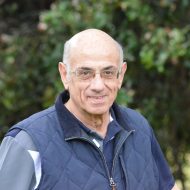
Robert Costa
Robert Costa is a co-founder of Costa Group, Australia’s largest grower, marketer and exporter of fresh fruit and vegetables. His knowledge of the commercial aspects of the horticultural industry and strong business acumen played a significant role in building the Costa business into the success that it is today.
Throughout the development years of the Costa Group, Robert managed the company’s asset base and balance sheet, including working capital, liquidity and cash flow.
This experience formed a strong knowledge base for his current position as Chairman of Costa Asset Management, a privately owned investment company that focuses on developing, managing and sustaining capital across a portfolio of agriculture, private equity and property assets.
Key strengths and experience brought to the Foundation by Robert:
- Exceptional financial and business sense
- A thorough knowledge of Australia’s horticultural industry
- Well connected in both the agricultural sector and commercial world
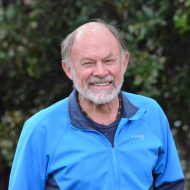
Des Cannon
Des started beekeeping while a Science teacher in Canberra, and after completing a TAFE beekeeping course in 1979 started teaching beekeeping to Horticulture students. In 1984 his hobby became a full-time career and he worked as a commercial beekeeper for 25 years.
His Science background played a role with him being on the RIRDC Honeybee R&D Advisory Committee for 11 years, the last 5 as chair. His passion for education continued, working part-time for 10 years with the NSWDPI, teaching ‘Beginning in Bees’ and ‘Beekeeping as a Business’. In 2007 he became the Editor of Australia’s leading beekeeping journal, The Australasian Beekeeper, a role he fulfilled for 14 years.
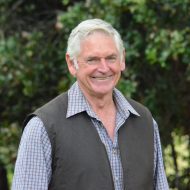
Rex Carruthers
Rex Carruthers is a commercial beekeeper from Cooroy, northern Sunshine Coast hinterland, Qld. He started beekeeping in 1993 following a successful career running his own Agricultural earth moving and soil preparation business. He rapidly expanded his apiary to 2000 colonies with his main business focus being the pollination of almonds in Victoria.
Rex is motivated by improvement and success and is constantly trialing changes to his practices in bee breeding and health, whilst finding new ways to manage and maintain the wellbeing of his bee colonies. He is also devoted to helping improve his industry.
Rex has been a member of the Queensland Beekeepers Association (QBA) for 25 years, and was on the state executive for 9 years, three as the State President. He was the Bee Industry Consultative Committee (BICC) Chairman from 2006 – 2010. During that time, he worked at both state and federal levels to improve issues relating to resource scarcity and was part of the development team who sort to make changes to legislation regarding the closure of Apiary sites in state Forests.
Living by the ethos “Hard work never hurt anyone, so why not devote your life to it” and “How could I make it better” whenever asked how his day has been, Rex replies “just sensational!”
Key strengths and experience brought to the Foundation by Rex:
- Practical understanding of commercial beekeeping and industry issues at the state and national levels.
- Strong desire to innovate and seek continuous improvement.
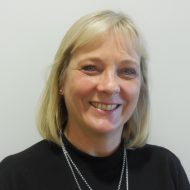
Dr Diana Leemon
Diana Leemon (BSc, DipEd, Grad Dip Biotech, M Appl Sc, PhD) is a research scientist formerly with AgriScience Queensland within the Qld Department of Agriculture and Fisheries (QDAF). She is currently a member of the Qld Beekeepers’ Association management committee and has just completed two terms on the AgriFutures Honey Bee and Pollination industry advisory panel, where she served as acting chair and deputy chair during her last term.
Diana was appointed adjunct associate professor to the school of agriculture and food sciences within the University of Queensland (2014- 2020) and the school of agriculture, computational and environmental sciences within the University of Southern Queensland (2017-2020). She served as a hearing expert for the European Union Food Safety Authority working group on Small Hive Beetle in 2015 and is currently on the advisory board of the World Bio protection Forum.
Diana’s research interests are centred around the non-chemical management of livestock pests and diseases to provide integrated pest management tools. Specifically using entomopathogenic fungi as biocontrol agents. Her wider research interests extend to applied mycology and how fungi can provide sustainable solutions for modern agriculture.
Diana has been a hobbyist beekeeper for over 25 years, keeping both honeybees and native stingless bees, though now only the latter. She also loves observing the diversity pollinators in her garden.
Key strengths and experience
- A passion for science with a good understanding of scientific processes
- Extensive proficiency in the conduct and management of biological research
- Skill in the assessment of research proposals and evaluation of research reports
- Extensive knowledge of the biology and ecology of bees
- A network of contacts through the Australian honeybee industry and the wider scientific community
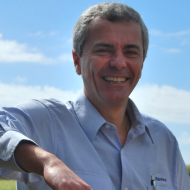
Peter Knoblanche
Peter has nearly 40 years’ experience in both wholesale and retail banking, having held positions with various Australian and international banks. Since joining Rabobank in 1996, in keeping with Rabobank’s being the leading global food and agribusiness lender, he has been closely involved in the agriculture and agribusiness sector across Australia, New Zealand as well as globally.
In 2016 Peter joined Rabobank’s global Management Team for Wholesale and Rural and took on the responsibility of Regional Manager, Australia and New Zealand and CEO Rabobank Australia. He also became a director of Rabobank Australia at that time.
He is a graduate of the Harvard Business School Advanced Management Programme 190 and the Australian Institute of Company Directors and holds a BCOM from Wollongong University.
Peter retired from Rabobank in May 2023 and remains passionate about the food and agriculture industry and its viability and sustainability to continue to feed the world.
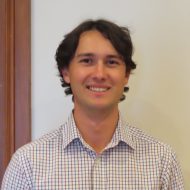
Tom Simmons
Originally from Meningie in South Australia, Tom Simmons grew up on a small property in a farming community. He has worked on broadacre cropping properties, a 14,000 head cattle feedlot, a northern grass-fed cattle operation, a thoroughbred stud and a large Western District sheep and cattle property. He has also spent time on conservation projects in the Amazon Jungle in Peru, before completing a Bachelor of Business degree (Agriculture) at Marcus Oldham College.
Tom now works for AWN (Australian Wool Network) as a Wool and Livestock Specialist and is based in Victoria. Throughout his career he has kept a small number of hives and maintains a keen interest in beekeeping and its importance to the agricultural industry. He has a passion for sustainable and regenerative farming practices that are mutually beneficial to the environment and the producer.
He is a keen advocate for biodiversity and for practices such as the planting of native trees on the boundaries of paddocks to form shelter belts to provide protection to livestock, crops and pastures whilst creating wildlife corridors to promote native animals and pollinators returning to the farm. Flowering trees and shrubbery provide a source of pollen and nectar to bees and native pollinators which can be incorporated into a farming system to improve crop and pasture production.
Tom is on farms and speaks with farmers everyday. He hopes to be a conduit to share knowledge, experience and expectations between those producing food and fibre and the foundation. With the honey bee population under threat from it is more important than ever to actively encourage landholders to be more aware of and promote habitats for native pollinators.
Emeritus Director
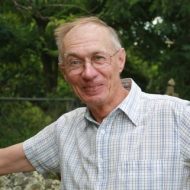
Colin Powell
Qualifying as a Chartered Accountant in 1974, Colin worked in professional offices, private practice, government and non-government “not for profit” organizations.
In 1995 he gained an Advanced Diploma in Horticulture through Sydney University completing his final year project on Horticultural Management on Gretchen Wheen‘s pecan farm in Richmond, NSW. Colin was an Executor of Gretchen Wheen’s will and helped oversee the formation of the Wheen Bee Foundation during Gretchen’s life and helped ensure a smooth transition in keeping with Gretchen’s wishes after her death. During his time as a Director of Wheen Bee Foundation from 2009 to 2017 Colin’s special responsibilities include financial reporting and taxation matters.
Past Directors
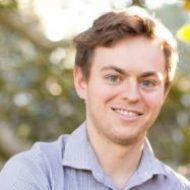
Sam Malfroy
Sam Malfroy comes from a well-known beekeeping family from the Central Tablelands and Blue Mountains of NSW and is passionate about honey bee biology and optimising pollination of agricultural and horticultural crops.
Between 2011– 2016 Sam worked at Plant Health Australia and managed many of the honey bee and pollination programs. This included the establishment of the BeeAware website, the honey bee biosecurity Code of Practice and National Bee Biosecurity Program, and the Varroa Continuity Strategy. Sam also managed the National Bee Pest Surveillance Program and led the development of many educational resources, such as the Honey Bee Biosecurity Manual. For this work, Sam was given the AHBIC Award of Excellence in 2016 for service to the honey bee industry.
Sam has also led honey bee surveillance efforts on behalf of the Australian Government in Norfolk Island (2014), and participated as a beekeeping specialist for a SE Asia aid program that focused on improving beekeeping management practices and the development of university syllabus (2013 – 2015).
From 2016, Sam has been working at the Department of Agriculture and Water Resources in trade and market access. He has a degree in Horticultural Science (Honours) from Sydney University where he specialised in plant pathology.
Key strengths and experience brought to the Foundation by Sam:
- Well-established connections with the honey bee industry and pollinator-reliant plant industries
- A thorough knowledge of honey bee biology and beekeeping practices
- Understanding of the research sector and government agencies
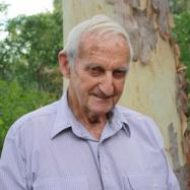
John Linton Briggs (AM)
(1930- 2020) Founding Director 2009-2019
Linton was one of the true greats in Australia’s magnificent beekeepers and was ahead of his time in recognising the importance of stock improvement for Australian honeybees.
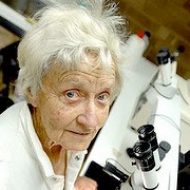
Gretchen Lewers Wheen
(1929 - 2012) Founding Director 2009-2012)
Gretchen was one of Australia’s best known beekeepers who donated her estate through a living bequest to establish The Wheen Bee Foundation.
